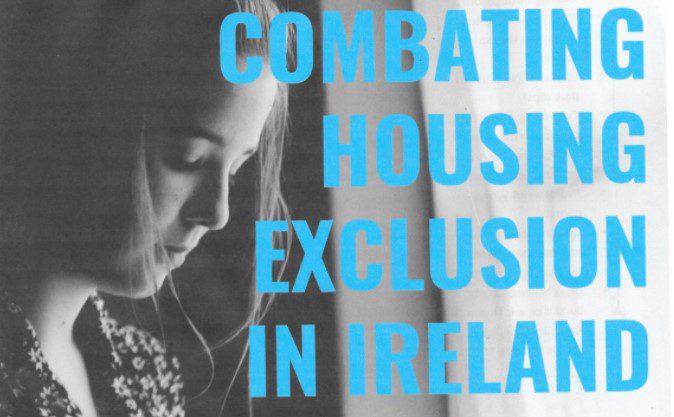
IN a new detailed report on housing and homelessness entitled Combating Housing Exclusion in Ireland, the Society of St Vincent de Paul (SVP) has welcomed the publication of the much-anticipated Housing for All plan. It says it particularly welcomes the increased ambition regarding the States role in the provision of social and affordable housing and the commitment to work to eradicate homelessness by 2030.
However, the charity is concerned about the lack of emphasis on measures to address family and child homelessness and the need to prevent it occurring in the first place. It says it is also disappointed that specific measures were not included to address rural homelessness and housing insecurity, an issue of increasing concern for its volunteer members who are working in communities outside of the main urban areas.
The analysis of the Housing for All plan forms part of a new SVP report, Combating Housing Exclusion in Ireland, which shines a light on the sometimes-hidden aspects of the housing crisis as seen by the organisations’ volunteer members.
The report estimates that the social housing targets need to be increased to an average of 15,000 per year to meet current demand and reduce the reliance on the private rented sector to accommodate low-income households. In the Housing for All plan the target for 2022 is 9,000. From 2026 to 2030 the target is 10,200 homes per year.
SVP says that the ‘official’ count of 8,132 people experiencing homelessness in July 2021 does not include over 20,000 individuals and families on the social housing list doubling up with friends or family, often known as the hidden homeless. Nor does it include over 3,000 women and children in domestic violence refuges or almost 8,000 individuals living in direct provision.
Drawing upon commissioned research, case studies and surveys of SVP members, Combating Housing Exclusion in Ireland, seeks to build up a picture of the human impact of homelessness, housing insecurity, and poor-quality accommodation. It provides examples of the stress of homelessness and the insecurity for those in private rental accommodation, in the words of those directly impacted.
SVP Policy and Research Officer, Marcella Stakem said: “The acute need for increased provision of social homes which will provide safety and security is to the forefront of the minds of SVP members who visit and support individuals, families and children living in substandard accommodation, insecure rented properties and emergency homeless accommodation. While the scale of long-term housing need outstrips the target set out in the Housing for All Plan, the shift towards the delivery of the direct build of social and affordable housing and increased capital investment is welcome.”
“Importantly, as we wait for more social housing to come on stream, the commitment to review the level of discretion applied by Local Authorities for the Housing Assistance Payment is a positive development. This must include a review of the limits as this will be critical if we are to address the issue of HAP top-ups which force so many families SVP assists into financial distress,” she continued.
With over 600,000 people, including 140,000 children in Ireland living in substandard housing, SVP welcomed the retention of the 25% inspection rate by local authorities to ensure properties meeting minimum standards and the commitment to introduce minimum energy efficiency standards in the private rented sector. It says these measures need to be backed up with clear strategies for delivery and the requisite level of funding.
“The commitment to work towards ending homelessness by 2030 is very welcome but if we are to be successful in reaching this goal, we need to improve our understanding of the scale of the problem and place greater emphasis on homeless prevention. Unfortunately, however, the plan is weak on prevention and tenancy sustainment measures. It is also concerning to see no recognition of the additional vulnerabilities faced by one parent families, who are disproportionately represented among the homeless population,” said Ms Stakem.
Rose McGowan, SVP National President, said; “Working directly with individuals and families experiencing housing insecurity, inequality, poverty, and marginalisation has afforded SVP a valuable perspective on the key challenges and opportunities in addressing the housing crisis. We welcome the publication of Housing for All as we urgently need it to deliver for the people SVP assists and to provide a pathway so the State can provide secure and affordable homes for people to live in vibrant and sustainable communities.”
SVP says it looks forward to continuing working with the Department of Housing and the Minister for Housing to ensure the Housing for All objectives are realised. Overall, the charity says a greater focus on those most acutely impacted by the crisis is required to ensure no one is left behind.


